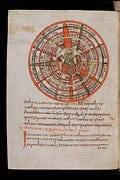The encyclopaedic shift

For better or worse, Wikipedia is the world's most popular encyclopaedia, whose English version averages around 255 million pageviews a day. …
Keep reading with a 7-day free trial
Subscribe to Biblonia to keep reading this post and get 7 days of free access to the full post archives.

